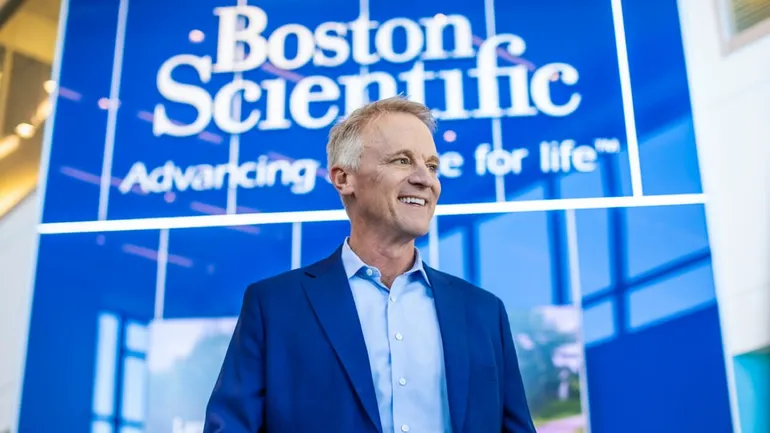By the numbers
Q2 sales: $4.12 billion
14.5% year-over-year growth
Cardiovascular sales: $2.64 bilion
17.8% year-over-year growth
Electrophysiology sales: $428 million
Nearly 122% year-over-year growth
Boston Scientific CEO Mike Mahoney said Wednesday that while the launch of the Farapulse pulsed field ablation (PFA) system has already been successful, there’s still more room to grow for the much-hyped product.
Mahoney told investors on a second-quarter earnings call that physician adoption rates are strong, the technology’s efficiency is helping to increase overall volumes, and efforts to expand and launch the device in international markets are still ahead.
The CEO, who previously called Farapulse one of the most transformational products he’d seen with the company, had another bold statement for investors about Boston Scientific’s electrophysiology business.
The Farapulse platform, combined with the company’s 2022 Baylis Medical acquisition and Boston’s own clinical efforts, “will be a differentiated growth driver for Boston for many years to come,” he said. “We expect this to be maybe the biggest business in Boston Scientific.”
Mahoney didn’t provide specific information on metrics like sales, utilization or the number of facilities using the system. However, the CEO spoke anecdotally about how physicians’ utilization rates are “very quick and sustainable” once they use Farapulse.
“We’re not seeing hospitals turn it on and turn it off, and go in and out of it, like you see in many medtech products,” Mahoney said. “The sustainability usage of Farapulse is very high once customers start using it.”
Electrophysiology sales grew year over year by roughly 122% to $428 million in the quarter, partly due to increased Farapulse volumes created by the system’s efficiency, Boston Scientific said in its earnings presentation.
PFA has been one of the medical device industry’s hottest markets this year, following the U.S. approval and launches of new systems from Medtronic and Boston Scientific. The procedure uses nonthermal electrical pulses to treat atrial fibrillation (AFib), compared with extreme heat or cold used in traditional therapies.
Wall Street has backed PFA as a space to watch over the next few years in the medtech industry, and top companies like Johnson & Johnson and Abbott are rushing to catch up.
Along with growing U.S. adoption, Boston Scientific plans on expanding into international markets and building usage in Europe, where Farapulse is already available. The company recently secured approval in China, and Mahoney said it expects approval in Japan in the second half of the year. He added that contributions from those markets will increase next year.
Farapulse is helping Boston Scientific attract new physicians to its products, the CEO said.
Mahoney explained the company gained business from “physicians who never considered using Boston Scientific [electrophysiology] prior,” adding that “many of them have completely converted to using Farapulse” for AFib procedures.
The company is also in the process of completing two billion-dollar acquisitions: Axonics and Silk Road Medical. Boston Scientific was forced to delay its timeline for closing the $3.7 billion Axonics deal after the U.S. Federal Trade Commission requested more information from the companies.
Mahoney did not speak in depth on Axonics but maintained that the company expects to close the purchase in the second half.

